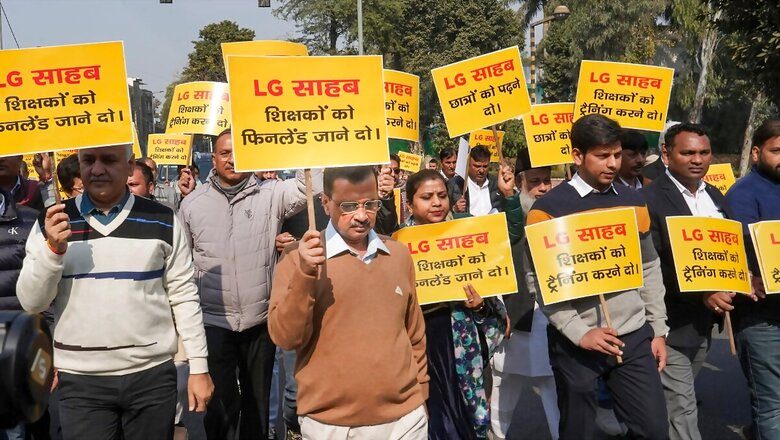
views
The Supreme Court has granted ‘Services’ to the elected government of Delhi. This gives the government power over bureaucracy to run its affairs. The Supreme Court judgment is not just about the victory of the Aam Aadmi Party or the rejection of the Centre’s broad authority. The political battle, which translated into a long-drawn court battle, might make it seem like one. But the Constitution Bench of the Supreme Court has restored an intricate, delicate power balance that was clearly thrown off in the political infighting.
Indeed, the case of Delhi is sui generis, which means unique, one that cannot be compared to other Union Territories or to the states. It is a special class among the Union Territories.
This administrative exception has been carved keeping the dual importance of Delhi in mind. The insertion of Article 239 AA has been read as the intent of Parliament to give powers to the Delhi Assembly which is directly chosen by the people.
The sui generis character of Delhi is predominantly because of its relationship to federalism. Federalism has been termed as the basic feature of the Indian Constitution in the historic case of SR Bommai vs Union of India. It is the relative and constitutionally sanctioned autonomy of the states to run their own affairs, while the Centre subsumes certain crucial powers in the national interest. The fact that the Centre can legislate on all subjects for Delhi and there is no exclusivity that the elected Delhi government enjoys does not devoid it of its federal powers, the Supreme Court has clarified.
The federal character or the state-like character of Delhi is derived and mandated as the people of Delhi choose their own representatives. This has been constitutionally envisaged.
But the question arises that if the Centre can legislate on all aspects for Delhi, are there any constitutional limits in this symbiotic relationship between Delhi and the Centre? The court clearly lays down that the Union must exercise its powers in the spirit of co-operative federalism and within the bounds of the established constitutional law. Any arbitrary overreach would be clearly amenable to judicial review. The judgment clearly demarcates those lines without any vagueness.
“It does not mean that NCTD is subsumed in the unit of the Union merely because it is not a State,” noted the judgment of the Supreme Court.
The existence of vast powers to Parliament to legislate on any matter for Delhi must be exercised within these constitutional bounds. The co-existence of these powers with Centre and Delhi does not rob the national capital of its unique federal nature, but it does make the relationship between the two complex one.
Cooperative federalism in democracy is not a new word. Our politicians have known of this concept. But polarised polity, inter party disputes and political ambition to score over opponents is the anti-thesis of cooperative federalism.
The Supreme Court has made it absolutely clear that the elected government in Delhi has real legislative and executive powers along with the control required on services and other subject in the State list and Concurrent list. There are only three exceptions to it – public order, police and land. The Centre and L-G must exercise their powers within these constitutional bounds.
The case of Delhi and the long legal battle is perhaps not a case study for other Union Territory because of the unique constitutional position. But this long legal battle running into multiple cases and two Constitution Bench judgments is the reminder of judicial and constitutional commitment to federalism. The court has protected and demarcated boundaries of this complex relationship.




















Comments
0 comment